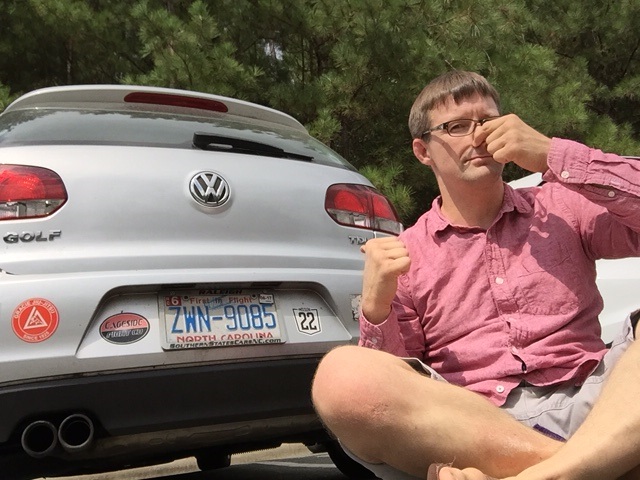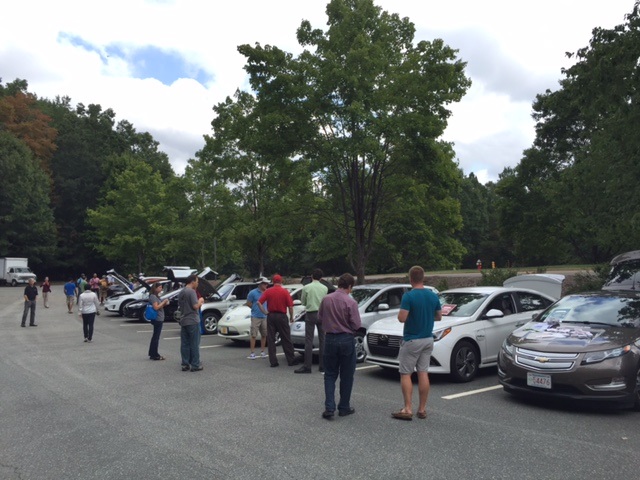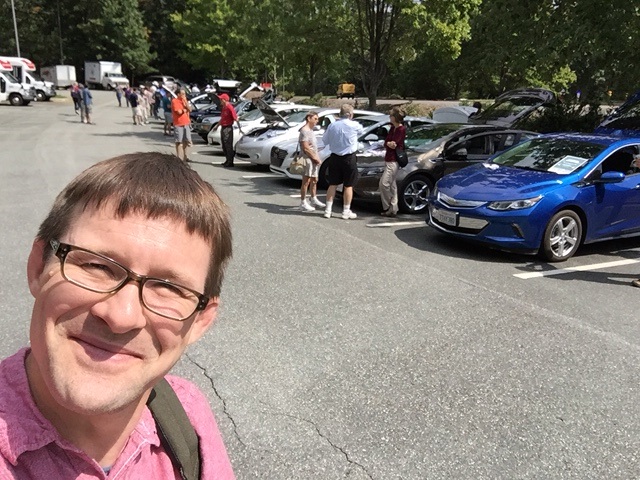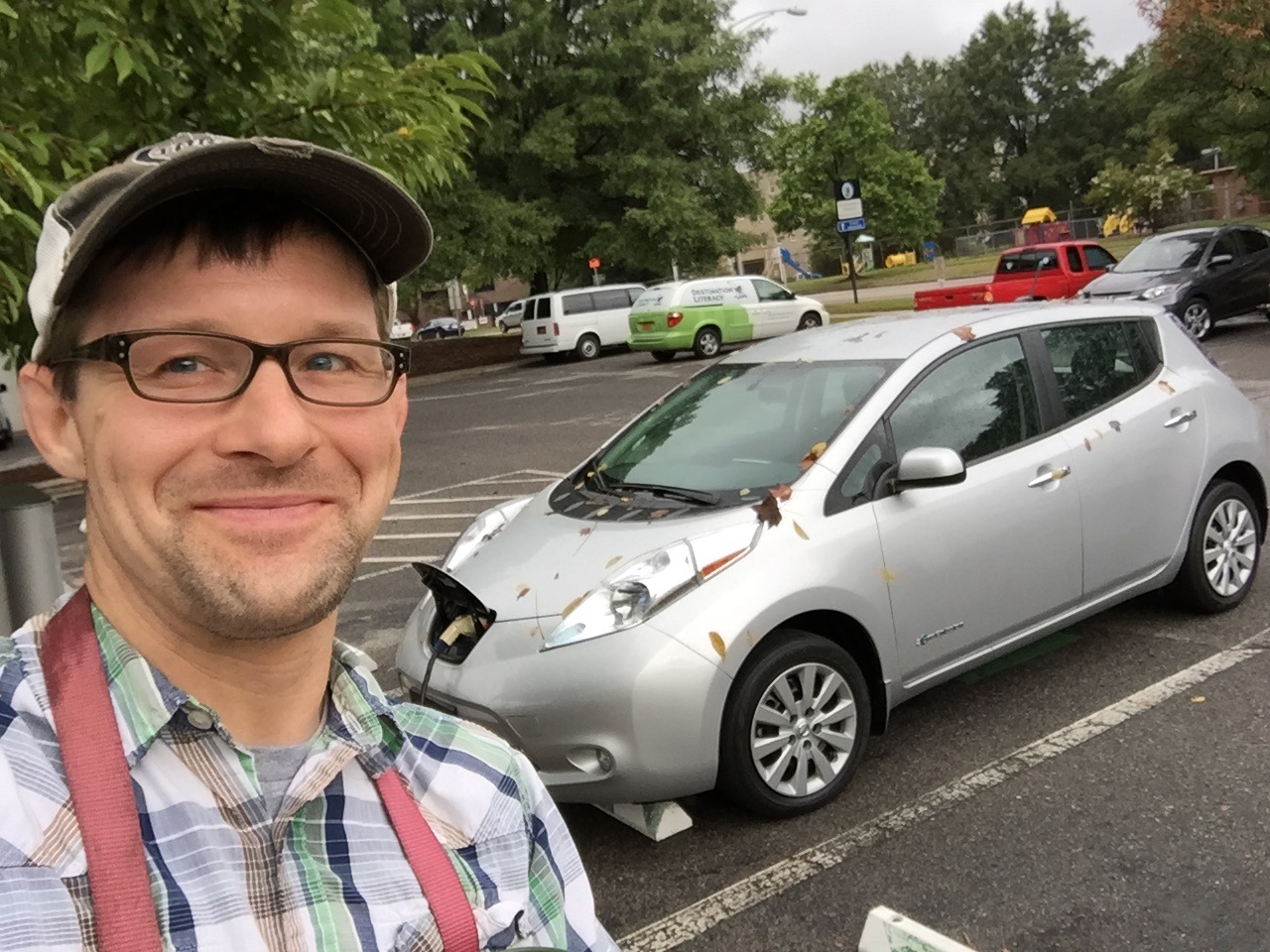In September of 2015, I suddenly found myself in the group of 482,000 drivers conned by Volkswagen’s (VW) so-called “clean diesel” cars. This incident, largely regarded as #Dieselgate, refers to VW’s installation of emissions cheat devices in diesel cars they advertised as “clean.”
I did all the research I could to find the most environmentally responsible car. Wanting to do my part to cut down on pollution, I -- and several friends -- fell for their deceitful ad campaign. The company sold hundreds of thousands of cars fitted with built in technology to turn off pollution controls after the car underwent and passed emissions tests to well minded consumers. Contrary to what I wanted when I bought a car and what VW told me I was getting, when I drive along our roads and highways and through our neighborhoods, my VW “clean diesel” pollutes between 10 and 40 times the legal limit set under the Clean Air Act. Hundreds of lawsuits have emerged against VW in the last year, including the U.S. Department of Justice and the Environmental Protection Agency (EPA), and the Federal Trade Commision (FTC). In June, VW’s settlement was announced, which included the buy back of the affected cars at their pre-scandal values, and additional cash compensation for the owners of at least $5,100.

Photo above: Jeff with his dirty Volkswagen diesel car.
Duped VW owners like myself are tired of driving what turned out to be the opposite of a clean car. So far, roughly roughly 210,000 people, including me, have signed up for the buy back. We’re ready to trade in our dirty and dangerous polluting cars for clean transportation.
While Dieselgate occurred because of VW’s blatant deceit, it represents larger emission problems in transportation. According to the EPA, carbon dioxide accounts for almost 81 percent of all greenhouse gas emissions from human activities in the US. And the transportation sector is the largest source of those emissions, accounting for a third of the nation’s total greenhouse gas emissions.
This is why it’s so important that we choose cleaner transportation options. Last week, I decided to check out truly cleaner transportation options at a National Drive Electric Week (NDEW) event in my community. The event in Raleigh, North Carolina that I attended was just one of more than 200 nationwide events, where EV owners displayed their vehicles and spoke to curious visitors about the many benefits of owning a non-polluting EV.
Sponsored by the Sierra Club, Plug-In America, and the Electric Auto Association, NDEW proves that nothing is more convincing to go electric than in-person conversations with satisfied, EV-owning neighbors, supplemented by actual test drives. NDEW attendees leave events with a full understanding of what it means and how it feels to drive a clean, plug-in vehicle. I got to test drive a Nissan Leaf at the event and was thrilled with its smooth ride, spacious interior and quiet but considerable power.

Photo above: National Drive Electric Week atendees check out electric vehicles at the Raleigh NDEW event.
After speaking to EV owners, I learned that EVs are both cheaper and cleaner to operate than gasoline powered cars. Because of lower fueling and maintenance costs and federal and state rebates, EVs are often cheaper than gasoline-powered cars. Even factoring in the emissions associated with electricity used to charge EVs, these cars are significantly cleaner than conventional vehicles (and of course using solar power to charge them is the cleanest choice). EVs only get cleaner over time as we shift to more renewable sources of power.

Photo above: Jeff at the Raleigh National Drive Electric Week event.
You might be asking how successful these events truly are at getting people to buy plug-in vehicles. They certainly convinced me! The day after attending an NDEW event and talking to EV drivers, I bought a 2014 Nissan LEAF Electric Car. I’m excited to finally be rid of my dangerously high-polluting VW. And I’m not alone in my purchase. A 2014 study supports the positive impact that NDEW events have on selling electric cars, showing that September 2014 saw a 20 percent raise compared to September 2013 in the amount of electric cars sold out of all cars sold. This year, during NDEW, the U.S. EV sales number climbed to over half a million since EVs first hit the mainstream auto market a few years ago.

Photo above: Jeff with his newly purchased plug-in electric 2014 Nissan Leaf.
As the 6th annual National Drive Electric Week came to a close this past weekend, a major oil spill in Alabama provided a stark, real-time contrast between clean energy and dirty fuel. Colonial Pipeline’s main distribution line, running from Texas to New England, was severed and leaked roughly 250,000 gallons of oil into a wildlife management area in Shelby County. Gasoline distribution to the southeast has been severely disrupted, causing the governors of Alabama, Tennessee, Virginia, Georgia, South Carolina, and North Carolina to declare states of emergency. Speculation on price hikes predict that retail gas prices could increase by as much as 20 cents per gallon in the Southeast region. According to Colonial, the repairs could last into next week as the company scrambles to find other transportation methods to get oil into isolated areas.
I lucked out: while all my friends in the Raleigh-Durham area are scrambling to find a station that still has gas, I’m riding around in a zero-emissions, no gasoline vehicle that feels like driving a spaceship.
It's never a question of if a pipeline will spill, but rather a question of when. Until every car and bus plug into increasingly clean renewable energy like wind and solar, our communities are at risk of dangerous oil spills and gas shortages. Until we transition from fossil fuels for good, tragedies like this will continue.
Incredibly harmful events such as Dieselgate and this oil spill are all too common in our fossil fuel dependent societies. But there is hope. According to Bloomberg, world wide EV sales were up 44 percent in the first half of the year and may finish 2016 at a record 647,000 worldwide. While NDEW may be over, it’s never too late to purchase an electric vehicle. Check out the Sierra Club’s electric vehicle guide to find the EV that’s right for you, and join me in making sure we keep dangerous fossil fuels in the ground.